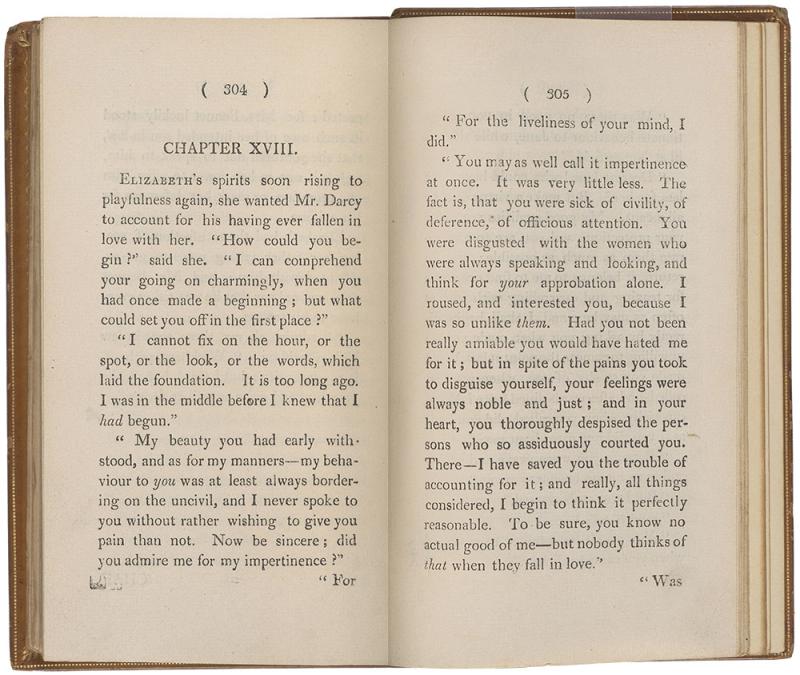Listen to co-curator Juliette Wells discuss how Jane Austen viewed her most popular novel.

“THE LIVELINESS OF YOUR MIND”
Published in 1813, Pride and Prejudice was Austen’s best-selling title, entering two further editions by the end of 1817. But because she sold the copyright, for £110, she did not share in the revenue. The title page omits Austen’s name while acknowledging her prior authorship, a formula used for all her subsequent novels.
Witty and confident, Elizabeth Bennet is Austen’s most appealing heroine. Although financial insecurity looms, Elizabeth declines two marriage proposals that she is certain would not make her happy. Wealthy Mr. Darcy ultimately earns her regard by listening to her criticism of him and undertaking self-improvement. His appreciation of Elizabeth’s intelligence is one of his most winning qualities, along with the excellent taste evident in his estate, Pemberley.
Jane Austen (1775–1817)
Pride and Prejudice, 3 vols.
London: printed for T. Egerton, 1813
The Morgan Library & Museum, bequest of Gordon N. Ray, 1987; PML 130100–02
Pride and Prejudice is often described as Jane Austen’s most wish-fulfilling romantic comedy. She herself commented, in a letter to Cassandra, that this novel is “rather too light & bright & sparkling;—it wants shade.” As so often with Jane Austen’s letters, however, context indicates that she wasn’t truly being critical, but rather indirectly expressing pride in her achievement. In Austen’s letters as in her novels, her tone is often a matter of interpretation.
Sparkling though it certainly is, Pride and Prejudice also contains one of Austen’s most forthright statements opposing conventional ideals of genteel femininity. In chapter eight, the characters debate what constitutes a so-called “accomplished woman.” Caroline Bingley begins a long list, including “a thorough knowledge of music, singing, drawing, dancing, and the modern languages,” as well as personal airs and graces, to which Mr. Darcy adds “the improvement of her mind by extensive reading.” Elizabeth Bennet boldly expresses the impossibility of meeting such standards, declaring: “I never saw such a woman. I never saw such capacity, and taste, and application, and elegance, as you describe, united.” By the end of the novel, of course, Darcy comes to realize that his own ideal mate is not a cookie-cutter accomplished lady but instead the witty, self-possessed Elizabeth.
